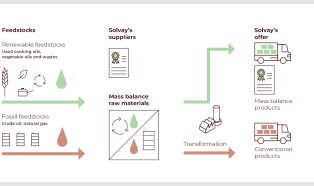
Finalists announced for Plastics Recycling Awards Europe 2023
Winners will be announced at PRSE in Amsterdam on 11 May.

Winners will be announced at PRSE in Amsterdam on 11 May.

Sustainable and ergonomic: Cabka introduces nestable and robust Retail E5.3 order picking pallet

Teknor Apex introduces New Crealen – an Innovative Glass Filled Halogen Free Flame Retardant Polypropylene (HFFR PP)

The conference organised by Amaplast and Ucima in cooperation with Confindustria Veneto Est presented the views and considerations of leading players in the supply chain and of the institutions

At the end of January 2023, trade fair promoters P. E. Schall had already registered 1169 exhibitors from 38 countries. “Halls A1 to A7 and B1 to B5, as well as the east and west foyer areas, including the east concourse, are nearly full,”

Solvay has announced that the production of its hydroquinone (HQ) and hydroquinone monomethylether (MeHQ), has been accredited to comply with the mass balance accounting regime of the International Sustainability and Carbon Certification (ISCC) Plus system.

Two hybrid Allrounder 470 H machines set the stage for new machine technology at the first anniversary event celebrating "100 years of the Hehl family company".

Neste, Borealis, Uponor and Wastewise Group enable chemical recycling of hard-to-recycle plastic waste into new high-quality plastic pipes

The American giant Mohawk Industries, flooring manufacturer, once again relies on Amuts's experience for the upgrade of its PET washing plant, in Summerville, Georgia USA.

Asiamold – Guangzhou International Mould & Die Exhibition will open from 1 – 3 March 2023 at the China Import and Export Fair Complex in Guangzhou. The fair will once again present fairgoers with advanced mould-making technologies, from leading domestic and international brands.

Dutch Environment Minister Vivianne Heijnen to keynote at Plastics Recycling Show Europe Conference

Quantafuel’s plans to build a series of plastic recycling plants across the UK are moving on swiftly after planning permission was granted for its first operation in Sunderland.